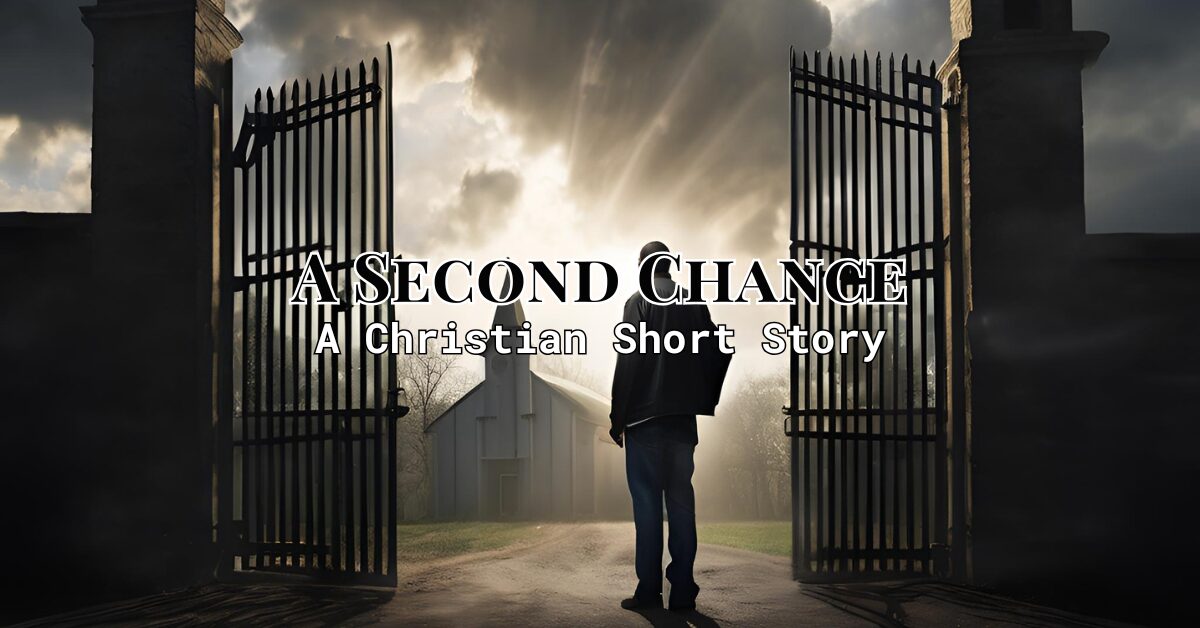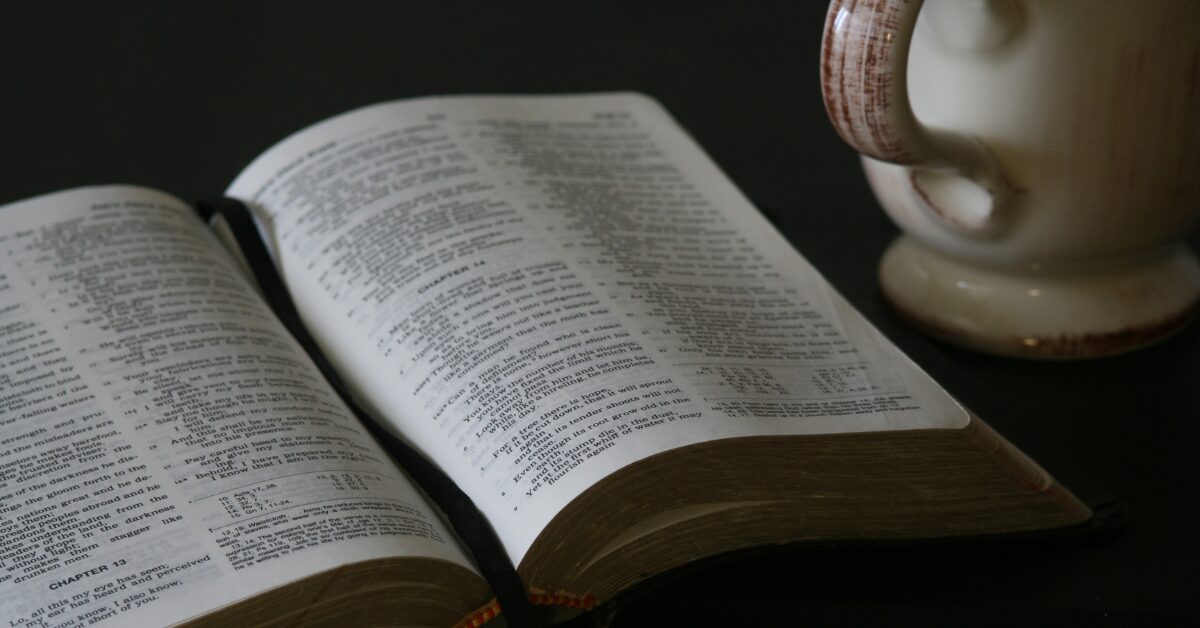Chapter 1: The Darkness of Imprisonment
Marcus sat on the edge of his thin prison mattress, staring at the walls of his cell. They had become a part of him—grimy, unchanging, indifferent to the passing of time. He had spent most of his life confined to those walls, first as a young man filled with rage and rebellion, and now, in his mid-forties, with a weariness that had long since drained his hope.
Prison wasn’t just his reality; it had become his identity. It had shaped him, hardened him. The outside world, which had once seemed vast and full of possibility, had shrunk to the size of this concrete box, and Marcus had accepted that. He had come to terms with the fact that he would never leave. Not physically, anyway. His body was imprisoned, and over time, his soul had followed suit.
He hadn’t always been like this. Once, he’d been just another boy in a rough neighborhood, trying to figure out how to survive. He’d grown up in the unforgiving streets of Detroit, where violence and desperation were constant companions. His mother worked two jobs to keep food on the table, and his father had disappeared long before Marcus could remember his face. School was a joke, and by the time he was fifteen, Marcus had stopped pretending to care about anything. The streets were where he belonged.
He ran with a crew back then—guys who were older, tougher, more dangerous. They were his family, teaching him how to fight, how to steal, and how to live by the code of the streets. Marcus thought he’d found where he fit, but it wasn’t long before his choices led him down a darker path. At seventeen, a robbery gone wrong had ended in tragedy. A man was dead, and Marcus, though not the one who pulled the trigger, was caught in the aftermath. His friends had scattered, but Marcus had been left behind. Alone.
The trial had been quick, his sentence severe: life in prison without parole. He was still a boy when the judge handed down the sentence, but the weight of those words crushed whatever innocence he had left. Life without parole. The words echoed in his head for years after that.
Marcus had entered prison with anger burning inside him, but over time, the fire dulled to embers. He stopped caring. The prison was all he knew now, and he accepted his fate. Relationships were nonexistent—he trusted no one. He kept to himself, surviving day by day in the routine of a place where hope didn’t exist.
But beneath the hard shell, Marcus carried a weight even he couldn’t fully understand. A deep void had formed within him, a place where pain, regret, and a vague sense of loss festered. He had never been one to reflect on the past; thinking about what could have been didn’t change anything. Yet, sometimes, in the quiet hours of the night, Marcus wondered if this was it—if this was how he would live and die.
That emptiness gnawed at him, though he didn’t know what it was. Guilt, perhaps. Or the loneliness that came from a life lived without any real connection. Whatever it was, Marcus ignored it as best as he could. But some nights, when the prison grew still and silent, the void would swallow him whole.
Chapter 2: An Unexpected Encounter
It was during one of those nights, when Marcus sat staring blankly at the walls of his cell, that a change began to stir in his life—though he didn’t recognize it at first.
The prison had started allowing a new ministry group to visit the inmates. Pastor Jonathan, a middle-aged man with a gentle demeanor and a passion for helping the lost, led the group. They offered Bible studies, prayer services, and one-on-one conversations with anyone willing to listen.
Marcus wasn’t interested.
He had seen groups like this before. People from the outside world, coming in with their talk of hope and redemption, trying to save souls they didn’t really understand. They would come for a few months, maybe a year, and then leave when they got bored or when they realized that nothing ever changed. People like Marcus didn’t change. They were who they were, and no amount of preaching could change the fact that the world had given up on them.
So when Pastor Jonathan and his group arrived, Marcus kept his distance. He stayed in the yard, away from the Bible studies, away from the men who gathered to listen to the pastor’s words. He didn’t need any of it. What good was talk of forgiveness to a man like him, who had spent his whole life behind bars for a crime he couldn’t undo?
But one afternoon, curiosity got the better of him. Marcus had heard some of the guys talking about Pastor Jonathan’s latest Bible study, and though he pretended not to care, something about the conversation stuck with him. They had been talking about forgiveness—real forgiveness, not just for the small things, but for everything. Even for someone who had made the kind of mistakes that couldn’t be undone.
Marcus didn’t believe in forgiveness. Not for him. But something inside him stirred. Could it really be true? Could there be a way to escape the weight of his past, to be free in a way that went beyond the walls of his cell?
The next week, Marcus decided to attend one of the Bible studies. He didn’t expect much—maybe he was just looking for a distraction, something to break up the monotony of prison life. But as he sat in the back of the room, watching Pastor Jonathan speak to the small group of inmates gathered around him, Marcus felt something he hadn’t felt in years: a spark of hope.
Pastor Jonathan talked about forgiveness, not as a vague idea but as something real, something tangible. He spoke about the story of the Prodigal Son, a story Marcus had heard before but had never really understood. The way Pastor Jonathan described it, the son’s return wasn’t just about going home—it was about finding a place where he belonged, even after he had made every mistake possible. It was about grace.
Grace. That was a word Marcus hadn’t thought about in years.
As Pastor Jonathan spoke, Marcus felt a pull deep inside him. It was as if the words were cutting through the walls he had built around himself, reaching the part of him he had buried so long ago. He didn’t know what it meant, didn’t know if he could trust it, but for the first time in a long time, Marcus felt something besides emptiness.
Chapter 3: Transformation Behind Bars
Weeks passed, and Marcus found himself returning to the Bible studies, though he still kept his distance. He would sit in the back, arms crossed, listening but not fully engaging. But every time he heard Pastor Jonathan speak, something in Marcus shifted. He wasn’t sure what it was, but there was a growing restlessness inside him—a restlessness that wouldn’t let him go.
It wasn’t long before Pastor Jonathan noticed him. After one of the sessions, the pastor approached Marcus with a warm smile.
“Marcus, right?” Jonathan asked, extending his hand.
Marcus hesitated, then shook it. “Yeah,” he replied, his voice gruff.
“I’ve noticed you’ve been coming to the studies lately,” Jonathan said. “I’m glad you’re here. How are you feeling about everything?”
Marcus shrugged, unsure of how to respond. “I don’t know,” he said honestly. “It’s a lot to take in.”
Jonathan nodded. “I get that. But you keep coming back, so something’s stirring inside you. Want to talk about it?”
Marcus hesitated. He wasn’t used to opening up to anyone, especially not someone like Jonathan. But something about the pastor’s calm, nonjudgmental demeanor made Marcus feel safe enough to speak.
“I don’t know if I buy it,” Marcus admitted, his voice low. “I’ve done a lot of things in my life. Things I can’t take back. How can I believe in a God who would forgive someone like me?”
Jonathan smiled softly. “I think a lot of people feel that way. But here’s the thing—God’s grace isn’t about what you’ve done. It’s about who He is. The Prodigal Son, remember? He came home not because he thought he deserved it, but because he was desperate. And the father didn’t care about his past. He just wanted his son back.”
Marcus stared at the floor, his mind racing. “I don’t know if I can believe that,” he muttered.
“Belief doesn’t happen all at once,” Jonathan said gently. “It’s a journey. And you’ve already started that journey, whether you realize it or not. God’s been working in you since the moment you walked into that room.”
Marcus didn’t respond, but Jonathan’s words lingered in his mind long after the conversation ended.
Over the next few months, Marcus continued to attend the Bible studies. He listened more intently, asked more questions, and slowly, the walls around his heart began to crack. There were still moments of doubt, moments when he wondered if he was fooling himself, but the pull toward something greater—toward God—grew stronger with each passing day.
Then came the moment that changed everything.
One night, after a particularly difficult day, Marcus found himself sitting in his cell, staring at the Bible Pastor Jonathan had given him. The weight of his past, the mistakes he had made, pressed down on him like a crushing burden. He had tried to forget it, tried to move on, but it was always there, a shadow that wouldn’t let him go.
But that night, as he sat in the darkness, Marcus felt something stir inside him—a longing for something more. He didn’t know what it was, didn’t know how to put it into words, but the emptiness that had defined his life for so long was unbearable.
And so, for the first time in his life, Marcus prayed.
It wasn’t a long prayer, or a particularly eloquent one. It was raw, messy, and filled with pain. He poured out his heart to God, confessing his guilt, his shame, and his fear that he would never be anything more than what he had become. He didn’t know if God was listening, didn’t know if he was worthy of forgiveness, but he was desperate.
“God, if You’re real… if You can hear me… I don’t want to live like this anymore,” Marcus whispered, tears streaming down his face. “I’m sorry. I’m sorry for everything. Please… help me.”
In that moment, something shifted. It wasn’t dramatic—there were no voices from heaven, no lightning strikes—but a deep peace settled over Marcus, a peace unlike anything he had ever felt before. It was as if the weight he had carried for so long had been lifted, and for the first time in years, he could breathe.
Marcus didn’t know what the future held, but in that moment, he knew one thing: God had heard him. And that was enough.
From that night on, Marcus was a changed man. He spent every spare moment reading the Bible, praying, and learning about the God who had given him a second chance. He began to share his faith with the other inmates, telling them about the peace he had found and encouraging them to seek it for themselves.
The prison, once a place of despair and isolation, became a place of transformation for Marcus. He still had years to serve, but his soul was free.
And then came the news that he had never expected: after nearly two decades behind bars, Marcus was being released.
Chapter 4: The Struggles of Freedom
Marcus had dreamed about what life outside of prison might be like, but nothing could have prepared him for the reality of it. After spending nearly half his life behind bars, the world had changed in ways he couldn’t have imagined.
The first few days were overwhelming. Everything moved so fast—cars, people, technology. It felt like he had been dropped into a world that didn’t belong to him, a world that had moved on while he had stayed frozen in time. The clothes he wore felt strange, the food tasted unfamiliar, and the noise… the noise was constant.
But the hardest part was the sense of isolation.
In prison, Marcus had been part of a routine. He had known what to expect, where he fit in. Out here, he was just another ex-convict trying to find his way. Employers took one look at his record and turned him away. People avoided him when they learned where he had spent the last twenty years of his life. Even the church, which had been a source of hope for him in prison, felt distant and strange in the outside world.
The rejections piled up, and with each one, the temptation to fall back into old patterns grew stronger. It would be so easy to slip back into the life he had known before—back into the streets, back into the darkness. No one would care. No one was giving him a chance anyway.
The doubts began to creep in. Was his faith real? Or had it been a crutch, something he had leaned on in prison to survive? Out here, in the real world, it felt different. The peace he had felt in his cell seemed so far away now.
One night, after yet another rejection from a job interview, Marcus found himself standing at the edge of a park, staring out at the city lights. He felt lost, more lost than he had ever been. The weight of his past hung over him, threatening to pull him under.
He closed his eyes, his fists clenched at his sides. “God, where are You?” he whispered. “I thought You had a plan for me… but I don’t know what to do anymore.”
In the silence that followed, Marcus felt something stir inside him—a memory, a conversation he had once had with Pastor Jonathan in prison.
“Faith isn’t about things being easy,” Jonathan had said. “It’s about trusting God even when it’s hard, even when you can’t see the way forward.”
Marcus opened his eyes, the memory of those words ringing in his ears. He didn’t have all the answers, but he knew one thing: he couldn’t give up. Not now. Not after everything God had done for him.
With renewed determination, Marcus made a decision. He would reach out to Pastor Jonathan. He didn’t know what would come of it, but he trusted that God hadn’t brought him this far just to abandon him now.
Chapter 5: Help from an Unexpected Friend
The following day, Marcus found himself standing in front of a familiar building, a small church on the outskirts of the city. Its simple stone façade and wooden cross rising toward the sky gave him a sense of peace that he hadn’t felt since his release. He hadn’t been to this church in years, not since the ministry team had visited the prison regularly. But Pastor Jonathan had never been far from his mind. The man had been the first to show Marcus what grace and hope really looked like.
Taking a deep breath, Marcus stepped inside. The sanctuary was quiet, bathed in the soft, warm light that filtered through the stained-glass windows. As he moved toward the front of the church, he heard footsteps behind him.
“Marcus?”
He turned to see Pastor Jonathan standing in the doorway, a look of surprise quickly turning into one of warmth and recognition.
“Pastor Jonathan,” Marcus said, his voice low but steady. “I didn’t know if you’d remember me.”
Jonathan smiled, walking over to clasp Marcus’ hand in both of his. “Of course I remember you. How could I forget?” He paused, studying Marcus’ face. “How have you been? How’s life treating you on the outside?”
Marcus hesitated. “It’s… hard,” he admitted, lowering his eyes. “Harder than I thought it would be. I didn’t expect it to feel this lonely.”
Jonathan nodded knowingly, his expression softening. “I understand. Reentry into society can be a struggle. You don’t have to go through it alone, Marcus. That’s why I’m here.”
The words hit Marcus like a wave of relief. The walls he had been holding up for weeks—the fear, the doubt, the loneliness—began to crumble. For so long, he had felt like he was fighting this battle on his own, but in that moment, he realized he didn’t have to.
Jonathan motioned for Marcus to follow him into the small office adjacent to the sanctuary. They sat down, and Pastor Jonathan listened as Marcus opened up, sharing the struggles he had faced since his release: the rejections, the isolation, the temptation to fall back into old ways. He spoke about his doubts, how he wasn’t sure if he could keep holding on to his faith in a world that seemed determined to pull him down.
Jonathan listened patiently, nodding as Marcus spoke. When he finished, the pastor leaned forward, his eyes full of compassion.
“Marcus, I won’t pretend to have all the answers,” Jonathan said gently. “But I do know this—God hasn’t brought you this far to leave you stranded. He’s still with you, even in the moments when you feel lost. And you don’t have to figure this out on your own. We have a reentry program here at the church, designed to help men like you transition back into society. It provides shelter, counseling, and a community that will walk alongside you.”
Marcus blinked, surprised by the offer. “I don’t want to be a burden,” he said quickly. “I’ve already asked so much from you—”
“You’re not a burden, Marcus,” Jonathan interrupted, smiling. “You’re a brother in Christ, and this is what we do—we help each other. Let us help you find your footing again.”
For the first time in weeks, Marcus felt a spark of hope rekindle in his chest. The road ahead was still uncertain, but knowing he had a place to go, people who cared, made it seem just a little more manageable.
The reentry program offered Marcus a room in a small, clean shelter run by the church, along with access to a counselor who specialized in helping formerly incarcerated men adjust to life outside. The routine was simple but structured: morning devotions, work assignments, counseling sessions, and community meals. There was also plenty of time for reflection, for Marcus to dive deeper into his faith through Bible study and prayer.
But the most valuable part of the program wasn’t the shelter or the counseling—it was Pastor Jonathan himself. The pastor took Marcus under his wing, meeting with him regularly to discuss the challenges he faced, both spiritually and practically. Jonathan never preached at Marcus, never made him feel judged or lesser. Instead, he became a mentor, offering guidance when needed and a listening ear when Marcus simply needed to talk.
Through these one-on-one conversations, Marcus began to rediscover his sense of purpose. The doubts and fears that had plagued him started to fade as he immersed himself in scripture and prayer. He found solace in the words of the Bible, particularly in passages that spoke of redemption, grace, and the power of second chances. Pastor Jonathan often reminded him that no one was beyond God’s reach—not even a man who had spent two decades behind bars.
As the months passed, Marcus began to find his place within the church community. Jonathan offered him a part-time job, helping with maintenance and upkeep of the church grounds. It was simple work—mowing the lawn, fixing leaks, painting walls—but it gave Marcus a sense of responsibility, a reason to wake up in the morning.
It was during this time that Marcus discovered the church’s prison ministry. Jonathan had continued his work with inmates, visiting local prisons to offer Bible studies and support. When Marcus heard about it, something clicked inside him.
“I want to help,” Marcus said one afternoon as they walked the church grounds. “I’ve been where those men are. I know what it’s like to feel trapped, to believe you’re beyond saving. Maybe I can show them there’s hope.”
Jonathan smiled. “I think you’d be perfect for it. God has given you a story to share, Marcus—one that can bring hope to others. Let’s get you involved.”
And so, Marcus found himself back in the prison system—not as an inmate, but as a man transformed by grace, offering hope to those still searching for it. He began visiting prisons with Jonathan, sharing his testimony with the inmates and listening to their stories. He saw the same desperation, the same hopelessness that had once consumed him, and he knew that God had placed him there for a reason.
Chapter 6: A New Purpose
For the first time in his life, Marcus felt like he had found his purpose. The work in the prison ministry became more than just an obligation—it became his calling. He was no longer defined by his past, no longer the man who had made mistakes and paid for them in isolation. Now, he was a messenger of hope, living proof that God’s grace could reach even the darkest corners of a person’s life.
Through his work in the ministry, Marcus built relationships with the inmates, listening to their fears, their regrets, their stories. He understood their pain because he had lived it. And he knew, without a doubt, that God could offer them the same second chance that had been given to him.
As Marcus continued to serve, something remarkable began to happen: people in the community started to take notice. At first, they had been wary of him—an ex-convict trying to make a new life. But slowly, as word spread about his work in the prison ministry and his involvement in the church, their perception of him began to shift.
It wasn’t easy. Some people still looked at him with suspicion, still whispered about his past when they thought he couldn’t hear. But Marcus had learned to lean on God’s grace, to trust that in time, people would see him not as who he once was, but as the man God had transformed him into.
One of the most difficult challenges Marcus faced during this time was reconnecting with his family. His mother had passed away while he was in prison, and he hadn’t spoken to his younger brother, Daniel, in years. The relationship had been strained even before Marcus’ incarceration, and the years of silence had only deepened the divide.
But Marcus knew that part of his journey toward redemption meant facing the broken relationships of his past. He prayed often for the courage to reach out, asking God for guidance on how to approach his brother after so many years.
Finally, one evening, after weeks of wrestling with his fears, Marcus picked up the phone and called Daniel.
“Hello?” The voice on the other end was cautious, unsure.
“Daniel, it’s… it’s Marcus.”
There was a long pause. “Marcus?” Daniel’s voice was laced with disbelief. “I didn’t expect to hear from you.”
“I know,” Marcus said, his throat tight. “I’ve been thinking a lot about the past… about everything that’s happened. I know I hurt you. I know I let you down. And I don’t expect you to forgive me, but… I just wanted to say I’m sorry. I’ve changed, Daniel. I’ve given my life to Christ, and He’s given me a second chance. I just hope that maybe, someday, you can give me one too.”
The silence on the other end of the line was deafening. Marcus waited, his heart pounding.
Finally, Daniel spoke. “I don’t know what to say,” he admitted. “I’ve been angry with you for a long time, Marcus. I didn’t know if you’d ever change. But… I’ve been hearing things, hearing that you’re doing good now. I don’t know if I’m ready to forgive you, but… maybe we can start by talking.”
Marcus swallowed the lump in his throat. “I’d like that.”
It wasn’t a perfect reconciliation. It would take time, perhaps years, to fully mend the relationship. But it was a start—a small step toward healing the wounds that had been left behind.
Chapter 7: A Second Chance
Just when Marcus thought he was finding his footing, life threw one more challenge his way.
It happened on a Saturday afternoon. Marcus was at the church, preparing for the next prison ministry visit, when two men approached him. They introduced themselves as detectives and asked to speak with him in private.
“Is there a problem?” Marcus asked, his heart sinking. He had a feeling this wasn’t going to be good.
“There’s been a complaint filed against you,” one of the detectives said. “A woman from your past—someone you knew before you went to prison—has come forward with accusations of assault. We’re investigating the claim.”
Marcus’ mind reeled. He hadn’t seen this woman in over twenty years, not since before his arrest. The accusations were from a time when he was a different man, living a life he barely recognized now.
“I didn’t do anything,” Marcus said firmly. “Not then, not now. I’m a different person.”
“We’re just here to gather information,” the detective replied. “We’re not making any judgments yet, but we’ll need you to come down to the station for questioning.”
The accusations were like a punch to the gut. After everything Marcus had worked for, after the changes he had made, it felt like the past was coming back to drag him down. He felt sick, angry, and deeply afraid. What if people believed her? What if he was dragged back into the legal system, labeled a criminal once more?
But Pastor Jonathan, who had witnessed the exchange, stood by his side. “You’ve come too far to let this pull you down,” he said. “God is with you, Marcus. He’s brought you through so much—He’ll bring you through this too.”
In the days that followed, Marcus wrestled with fear and doubt. Old temptations resurfaced—the urge to run, to give in to despair. But each time, he turned to God in prayer, asking for strength to trust in His plan.
Eventually, the accusations were proven false. The woman, struggling with her own demons, had come forward with a story that was later debunked by witnesses and evidence. The relief Marcus felt was overwhelming, but it wasn’t just relief—it was a reaffirmation of the path he had chosen.
Through it all, Marcus had stayed faithful. He hadn’t run. He hadn’t let fear consume him. And in the end, God had proven Himself faithful once again.
As the years passed, Marcus fully integrated into the church community, becoming a pillar of the prison ministry. He led weekly Bible studies, spoke to groups about his journey from prison to redemption, and mentored young men who were just starting their own walks of faith.
His life had changed in ways he could never have imagined. And it was all because of one simple truth: God is a God of second chances.
The End
Also Read: The Shepherd’s Voice









